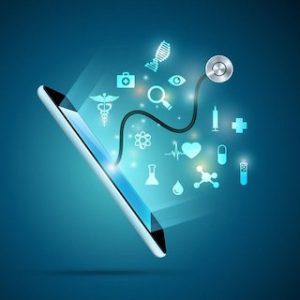Why Tech Will Play a Bigger Role in Your Future Health
Technology has become an integral part of medicine today. The right technology can increase efficiencies, improve quality, and reduce costs. Today’s technology can also help facilitate communication between clinicians, improve medication safety, increase access to medical information, and support patient-centered care.
Health tech right in your hands
Desktop, smartphone, or web-based intelligent chatbots are changing the way patients access health advice. These are becoming an increasingly popular tool for healthcare organizations wishing to free up their helpline personnel to focus more on critical in-person engagements with their patients while guaranteeing the availability of remote support on demand.
Mobile applications (aka mobile apps) are also helping to improve access and deliver support to patients. Mobile apps enable people to easily manage their health and wellbeing; everything from prompting them to take medications, to finding general medical information or accessing their test results securely online 24/7 without having to book in an appointment with their primary care physician and wait days for results.
This mobile connectivity also helps healthcare professionals stay informed and interact with patients without being tied to one fixed location. Enabling them to access the intranet from their mobile device or a shared tablet ensures they can quickly access information relating to diseases and drugs, images for clinical matters, continued education activities and so other resources that support their daily work.
Expansion to preventive services
Wearable health trackers have been in use for quite some time, but advanced technology makes them smarter than ever and vital to the future of healthcare. They can capture tons of health information, such as blood pressure, heart rate, and sugar levels in the blood. By connecting these devices to hospital information systems via the cloud, caregivers can monitor their patients remotely.
There are also implantable health trackers that help to track drug adherence. Typically, a patient takes a pill with a built-in IoT sensor, which sends data to a wearable device. The system transmits compliance information to a mobile app. Such technology can impact the way caregivers treat and manage mental complications and other disorders where patients inadvertently miss doses of their medication. The transmission of this data in real time is essential to the transformation of healthcare from reactive interventions to proactive care. And wearables are helping to lower the costs of preventive care and individual-patient monitoring.
Technology used in healthcare settings
The cloud is enabling doctors, nurses, surgeons, and pharmacists to collaborate on patient care in real time, which boosts service delivery. It also allows multiple stakeholders, for example, hospitals and pharma companies, to share information, such as medical records. This level of interoperability is also providing improved transparency into patient care, with all care partners able to access shared information to make more informed decisions on treatment plans. Patients are also able to reap the benefits of information stored electronically, able to take a more active role in decision-making about their own health.
A vital aspect of these technologies is electronic health records, and the objective of their interoperability is to give clinics, private practices, and hospitals seamless access to and a comprehensive view of patient data. With integrated healthcare IT systems, continuity of patient care is possible, and providers have the information necessary to improve the quality of care and treatment outcomes.
Technology driving the creation of new treatments
It can cost roughly $2.8 billion to develop a drug, with most of the money going into clinical trial phases or regulatory scrutiny. However, new technologies in AI are driving better R&D. Drug researchers are using AI-driven technologies to comb through massive chunks of healthcare data, test numerous compounds, and identify the right ingredients for the treatment of specific health complications. Pharma companies are using AI and the cloud to optimize drug testing and validation processes, fast-track drug discovery, and cut R&D costs.
Another promising healthcare technology is in silico drug trials. These are individualized computer simulations used in the development or regulatory evaluation of a medical product, device, or intervention. While the current technology and biological understanding don’t allow for completely simulated clinical trials, there is significant progress in this field with organs-on-a-chip, which are already being put in use. This approach is being employed in several research projects to study heart diseases and osteoporosis.
Advanced Technology is Transforming Healthcare in a Big Way
Cutting-edge medical and digital technologies are offering revolutionary tools that underpin the long-term future of healthcare. Whether it’s through remote patient support, interoperability that is driving the advent of “smart” hospitals, or the development of new medical treatments, technology is transforming the way healthcare is delivered. All this investment in new technology portends to deliver improved treatments, faster information exchange, and better patient outcomes for the future.
